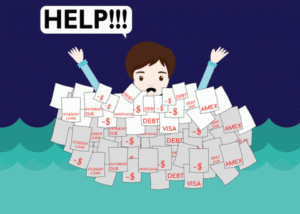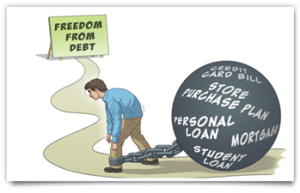Negotiating and Settling Debt: Tips for Talking to Creditors
 When money is tight, and your expenses are high, you may find yourself in a pickle with creditors. It’s often an inevitable part of life as you learn and progress – but when the creditors are more than just one or two, the problem seems to snowball a bit too fast. It’s impossible to keep up with, the phone never keeps quiet, and life seems so very unfair.
When money is tight, and your expenses are high, you may find yourself in a pickle with creditors. It’s often an inevitable part of life as you learn and progress – but when the creditors are more than just one or two, the problem seems to snowball a bit too fast. It’s impossible to keep up with, the phone never keeps quiet, and life seems so very unfair.
You can solve it all in one go, though, by learning how to communicate effectively with those dreaded people on the other end of the line and negotiate a good deal.
Here is a handful of the best advice from money experts out there, giving you and your finances some peace of mind at last.
Be honest to generate sympathy
So creditors may be unpopular, but they’re just regular folks like you and I. Pick up the phone, talk from the heart, and stick to your story – especially when you’re dealing with multiple creditors. They don’t want to hear about all the problems you’ve had the past year, of course, but a quick explanation will soften even the toughest creditor.
If you’ve been ill or away from work for a couple of months, it’s a good idea to make them aware of this. The same goes for any other problems you’ve had in the household lately, if your husband has been laid off, or if you’ve run into unexpected medical expenses.
Life is, after all, just life and creditors deal with it too. Check out entrepreneur.com for some top tips on how to convince them not to ruin your credit score.
Stay calm, by the way, and whatever you do, don’t lose your temper with them. To be overdramatic or show childish anger won’t get you anywhere when you’ve passed the age of ten.
Don’t be afraid to ask questions
Remember that this conversation is for your benefit as much as the people you owe money. When the ruthless creditor tells you that you may risk losing your house or be sued, try not to run away from it all but ask specific questions instead.
When can you expect further action to be taken? Is it a good idea to find a personal loan to cover the most pressing expenses? When can you expect the money to be withdrawn from your account? You can have a look at personalloan.co to have a backup handy in case another loan may keep you from being sued.
Some of the threats they make may be illegal, by the way, so ask questions and take note of their answers for your own record.
Understand your situation
Do yourself a massive favor and be prepared the next time they ring. When you know how much you’re able to afford, it becomes a lot easier to keep up with the negotiations and find a realistic solution – otherwise, you may end up in the same situation in a few months.
Dealing with creditors is never much fun, but it’s inevitable when you’d like to put the past behind you. Get it over with as soon as possible, improve your credit score, and start to live within your means again.
















